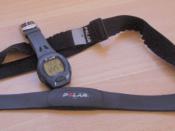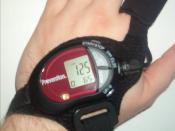The heart is a vital organ in the human body. Though only the size of the fist, it pumps blood to the rest of the body by rhythmic expansion and relaxation. The frequency of this cardiac cycle is measured by the term heart rate. The heart rate is the number of contractions (beats) of the heart in a minute. The heart rate tends to increase with response to a wide variety of conditions like vigorous physical activity or according to our hypothesis, music. Music has an arousal effect which is related to its frequency and tempo. Slow or meditative music can induce a relaxing effect and thus put the psychological sense in rest. Music may be used as an alternative technique of relaxation or meditation.
Recent research suggests slow music influences a person's relaxation, and that musical pauses modulate heart rhythms (in a good way).
The researchers found that music with faster tempos resulted in increased ventilation, heart rate, and blood pressure.
When the music was paused, ventilation, heart rate, and blood pressure decreased, sometimes below the beginning rate. Slower music caused declines in heart rate, with raga music influencing the largest decline. Overall, researchers agreed that the style of music wasn't as important as its pace.
Music has also been shown to reduce stress, benefit athletic performance, and enhance motor function in people with neurological impairments. So turn up the volume and chill out.
Listening to music can influence your heart rate and how fast you breathe - especially if you're a trained musician, a new study indicates.
Listening to faster music with a more upbeat tempo has the opposite effect - speeding up respiration and heart rate.
The results support a growing body of research on the potential stress-reducing health benefits of music, the researchers say.
In the...


